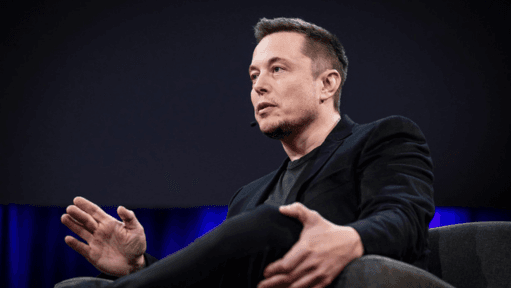
Elon Musk's Remarks Reignite Debate on EVMs: How Electronic Voting Machines Function?
Every Tesla car can be hacked then: BJP leader counters Elon Musk over EVMs
Tesla CEO Elon Musk wants the EVMs or electronic voting machines “eliminated” as he believes they carry a risk of getting hacked by humans or artificial intelligence.
Musk made the remark while reacting to a report of alleged voting irregularities due to the EVMs in the Puerto Rico elections. The Twitter CEO’s inputs on the much debated topic have also spread to the Indian political discourse, sparking a renewed focus on the issue. Rahul Gandhi labelled EVMs as ‘black box’, which he said nobody is allowed to scrutinise.
“Serious concerns are being raised about transparency in our electoral process,” Gandhi said, referring to the row over alleged EVM tampering in Mumbai North West seat in Maharashtra during the recently concluded Lok Sabha elections, a claim refuted by the Election Commission.
Meanwhile, former Union Minister Rajeev Chandrakshar said that Musk’s views may apply to the US, where internet connected voting machines are used but in India, EVMs are secured. He responded to Musk’s remark, saying they were a “sweeping generalisation” and offered the billionaire a “tutorial” of how the EVMs work. However, Musk remained unconvinced.
How Do Indian EVMs Work?
According to the explanation by the election body, EVMs are electronic devices with two units - a Control Unit and a Balloting Unit. Joined by a five metre cable, the control unit remains with the polling officer while the Balloting Unit is placed inside the voting compartment.
The control unit has a ‘ballot button’ which is pressed by the poll official to release a ballot. Once this happens, a voter can register their vote for the candidate of their preferred choice by pressing the blue button on the Balloting Unit against that candidate and symbol.
The EC says that the EVMs don’t require electricity. They run on ordinary batteries, which are assembly by either Bharat Electronics Limited or Electronics Corporation of lndia Ltd.
One EVM can record a maximum of 2,000 votes and can feature a maximum of 64 candidates including Nota (none of the above choices) if the earlier M2 EVMs (2006-10) model is used.
However, the M3 EVMs used post 2013, can accommodate up to 384 candidates by connecting 24 Balloting Units to it.
The EVMs have been designed by an expert panel of the poll body in collaboration with two government-owned entities - Bharat Electronics and the Electronic Corporation of India. The EVMs are manufactured by these two public sector undertakings.
M2 EVMs cost about Rs8,670 per unit while M3 EVMs are slightly costly, priced at Rs17,000.
BJP Leader Counters Elon Musk
A day after a fiery debate with SpaceX CEO Elon Musk over how secure EVMs are, former Union Minister Rajeev Chandrasekhar shared an analogy of a calculator and a toaster that he said cannot be hacked.
Chandrasekhar said that an Indian EVM does not lend itself to being hacked because it's precisely a very limited intelligence device. "It only counts the vote and stores the count," he said.
The BJP leader said that Musk's claim that "all EVMs can be hacked" is widely inaccurate.
"EVM is not a sophisticated machine that Elon Musk is thinking of that could be hacked, and therefore, he is factually wrong."
Underlining the fact that he respected Musk and his achievements, Chandrasekhar, the former minister of IT, said, "I am not an Elon Musk.
But I also have a certain understanding of technology to claim that there cannot be any secure electronic or digital product in the world.
It is just the same as one can say that every Tesla car can be hacked. I think that is like stretching the limits of what people understand of technology today."
Jumping into the controversy, Shiv Sena (Shinde) MP Milind Deora said that Elon Musk should not meddle in India's democracy. In a post on X, Deora said, "I’m a fan of Elon Musk as an innovator, but of Silicon Valley’s Big Tech billionaires meddling in India’s democracy. Still, I asked ChatGPT-- co-founded & funded by Musk -- about EVMs.”
He also added ChatGPT’s response to his post. The ‘conversation’ reads: “Do India’s EVMs use a SIM card?” Replying to Deora’s question, the chatbot answered: “No, India’s Electronic Voting Machines (EVMs) do not use SIM cards. They are standalone devices that are not connected to any network, making them immune to remote hacking. The design and function ability of EVMs ensure that they operate independently without the need for any external connectivity, which enhances their security and reliability in conducting elections.”
For any enquiries or information, contact ask@tlr.ae or call us on +971 52 644 3004. Follow The Law Reporters on WhatsApp Channels.